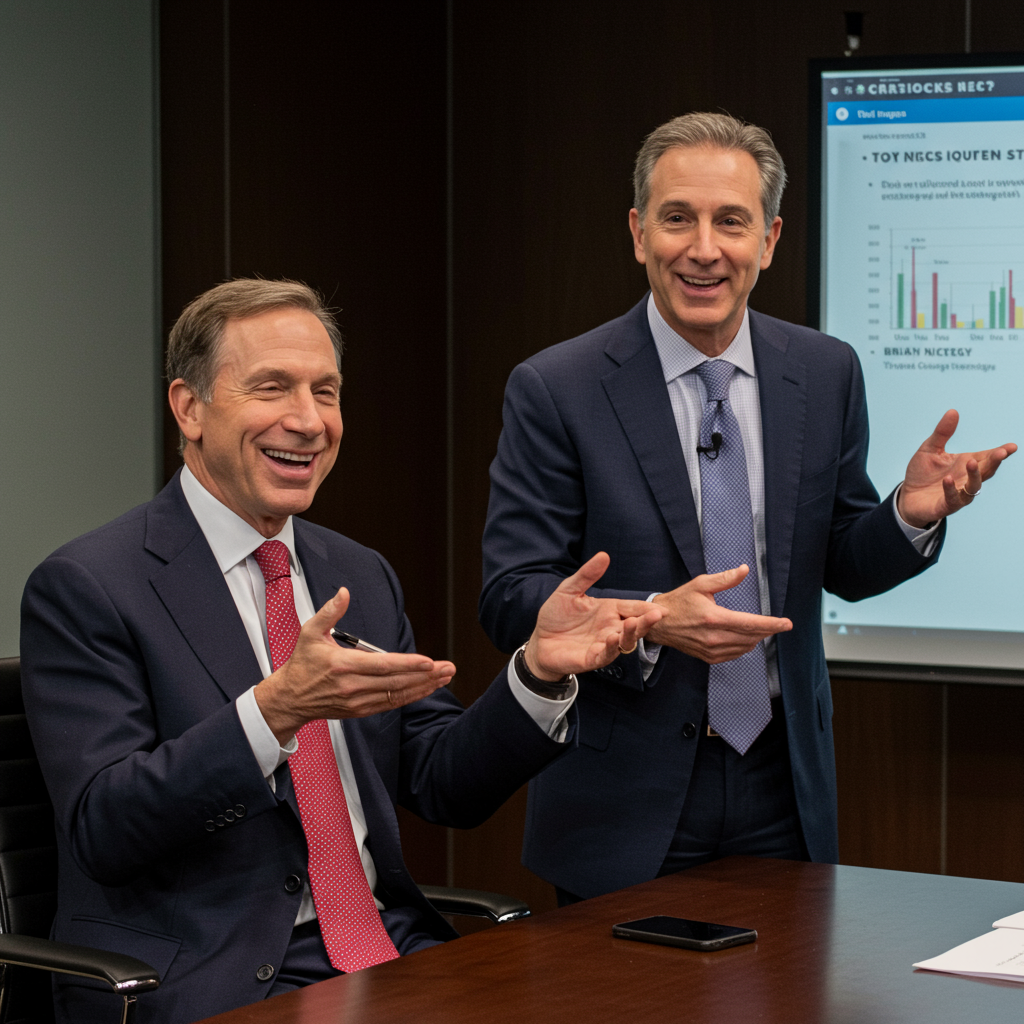Trump Administration Drastically Cuts Voice of America Staff, Raising Concerns for Global Journalism
Hundreds of journalists and employees at Voice of America (VOA), the U.S.-funded international news outlet, have been laid off by the Trump administration. This action, part of a severe reduction across the U.S. Agency for Global Media (USAGM) – which oversees VOA and funds networks like Radio Free Europe/Radio Liberty (RFE/RL) and Radio Free Asia (RFA) – effectively dismantled large parts of the organization and left thousands of employees in limbo.
Recent layoff notices were delivered to 639 employees at VOA and USAGM, according to Kari Lake, a senior adviser at the agency appointed by President Trump. These cuts bring the total number of jobs lost since March to approximately 1,400 across VOA, the Office of Cuba Broadcasting, and USAGM, representing over 85% of the combined workforce. Lake stated that only about 50 positions are expected to remain across these entities, framing the drastic measure as necessary to shrink a “bloated, unaccountable bureaucracy” plagued by “dysfunction, bias and waste.” She declared this “long-overdue effort ends now.”
“Historic Act of Self-Sabotage” and Loss of Soft Power
The move has drawn sharp criticism from current and former staff, who view it as a severe blow to independent journalism and U.S. “soft power” abroad. Steve Herman, VOA’s chief national correspondent, characterized the dismantling of the outlet as a “historic act of self-sabotage” and stated the U.S. government was “completing the silencing of its most effective soft-power weapon.”
VOA was founded during World War Two to counter Nazi propaganda and has historically served as a crucial source of independent news, particularly in countries where a free press is limited or non-existent. Its reporting has earned acclaim in regions like China, Cambodia, Russia, and North Korea. Journalists who have filed a lawsuit challenging the administration’s actions described the mass dismissals as spelling “the death of 83 years of independent journalism that upholds U.S. ideals of democracy and freedom around the world.”
The Immediate Impact and Human Cost
The layoffs followed a March directive from President Trump aiming to “eliminate” VOA and USAGM “to the maximum extent consistent with applicable law.” Since mid-March, most VOA employees had been placed on administrative leave, leading to broadcasts falling silent, radio stations playing music, TV channels looping mission statements, and the English website homepage freezing. RFE/RL and RFA saw their federal funding grants terminated, resulting in widespread furloughs and job uncertainty for their staff.
The human cost is significant, leaving over 4,700 employees across USAGM networks – including more than 2,000 at VOA and 1,700 at RFE/RL – in a state of precarity. Many of these journalists report from restrictive regimes and face extreme danger in their home countries. The loss of employment also jeopardizes the immigration status of staff on work-based visas, potentially forcing them to return to perilous situations.
Employees described receiving emails requesting personal contact information as a warning sign before the final layoff notices. The dismissal process was swift; according to reports, Persian-language reporters, some of whom had been called back to cover an attack by Israel on Iran, were locked out of the building and had their badges confiscated after stepping outside for a break when termination notices were distributed. Anonymous staff expressed shock and upset, noting the hostile attitude from HR and feeling like victims, with some contemplating leaving journalism altogether.
For individuals who sought asylum in the U.S. after facing persecution for their reporting in countries like Russia, joining VOA was a way to continue their mission of providing truth. The sudden cuts and negative portrayal of VOA have been particularly frustrating for these journalists, many of whom are exiles dedicated to providing uncensored news in over 40 languages.
Broader Context and External Reactions
The actions against VOA and USAGM align with President Trump’s broader, long-standing criticism of U.S. media, which he often labels as biased or “fake news.” He has previously urged Republican colleagues to cut federal funding for public broadcasting entities like National Public Radio (NPR) and the Public Broadcasting Service (PBS). Tech billionaire Elon Musk is also reported to have influenced the decision, publicly calling for the closure of RFE/RL and VOA, describing them as “radical left crazy people talking to themselves” and inefficiently spending taxpayer money. A government efficiency inspection unit led by Musk was reportedly involved in earlier developments leading to staff dismissals and investigations into journalists who had criticized Trump policies.
While the administration cited bias, some internal critics, like former VOA correspondent Dan Robinson, have supported the decision, arguing the outlet had developed a “leftist bias.” However, the prevailing view from current staff and critics is that the firings are a harmful political action.
The move has drawn international attention, with reports indicating that Chinese state media welcomed the cuts, and adversaries who seek to control information flows are likely celebrating the demise of a key source of independent news. Conversely, former political prisoners and Nobel laureates have publicly praised the vital role played by USAGM networks in providing essential information to oppressed populations.
Despite temporary legal reprieves that have blocked further action to fire or furlough VOA staff and requested the reinstatement of RFE/RL’s funding, the future of U.S.-funded international broadcasting remains highly uncertain. RFE/RL, for instance, began furloughing staff due to a lack of received funds despite a rescinded termination letter. Many fear the damage is permanent, as prolonged silence allows audiences to find alternative news sources, making it difficult for the outlets to recover even if funding is eventually restored by a future administration or Congress. As Steve Herman noted, he believes “the destruction is permanent.”
The global media community is watching closely to understand the long-term implications of these unprecedented cuts on VOA’s ability to operate and on the wider landscape of international press freedom and U.S. diplomatic soft power.




